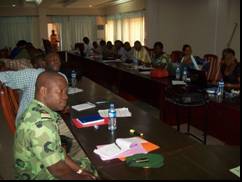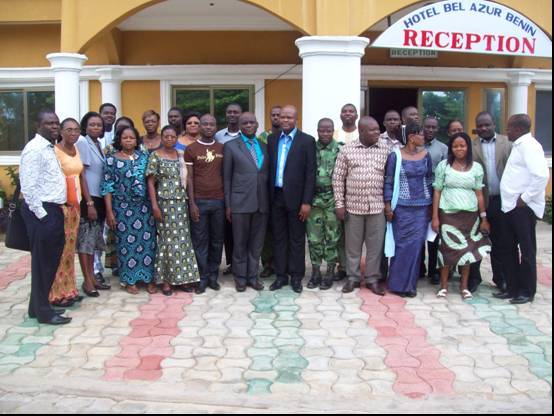Around thirty representatives (including 07 women) of NGOs, technical and financial partners and central and decentralized services of the State from the water sector received training on gender mainstreaming in IWRM. This is to provide participants with a better approach to take into account gender in the initiatives promoting IWRM as well as policies, strategies, programs and projects of the sub-sectors of water.

The capacities building session is part of Component 4'''' Support to IWRM process” the Programme Pluriannuel d’Appui au secteur de l’Eau et de l’Assainissement (PPEA), which puts a particular emphasis on cross-cutting issues as gender, with a view to improving governance in the water sector. It was an opportunity for participants to contribute to ongoing discussions in Benin aiming at ensuring better integration of gender in the water sector and its implementation. After taking knowledge of the principles of IWRM and Gender, the tools and methods of their application process, the participants of the training session established specific roadmaps according to each subsector. They drown up the need to promote equal participation of men and women in the management bodies of water, the presentation of the roadmaps concerned organizations, the commitment of CWP to support the implementation and monitoring of these roadmaps, etc.
Gender remains an essential component of IWRM; meetings and declarations at international level (as both Dublin and Rio principles), recognize the central role of women in the provision, management and safeguarding of water. In Benin, the country's Vision 2025 provides for the promotion of gender equality for sustainable development. However, the lack of formal mechanisms at both national and local level and the weak ownership of the Gender and Water concept by decision-makers and stakeholders are struggling the meeting of this vision in the water sector. The capacity of stakeholders appears too weak to translate into real actions the needs and concerns of particular or vulnerable groups such as women. This often leads to poor management of projects and programs, with its implications of negative impact on their results, despite huge investments to improve water services.
